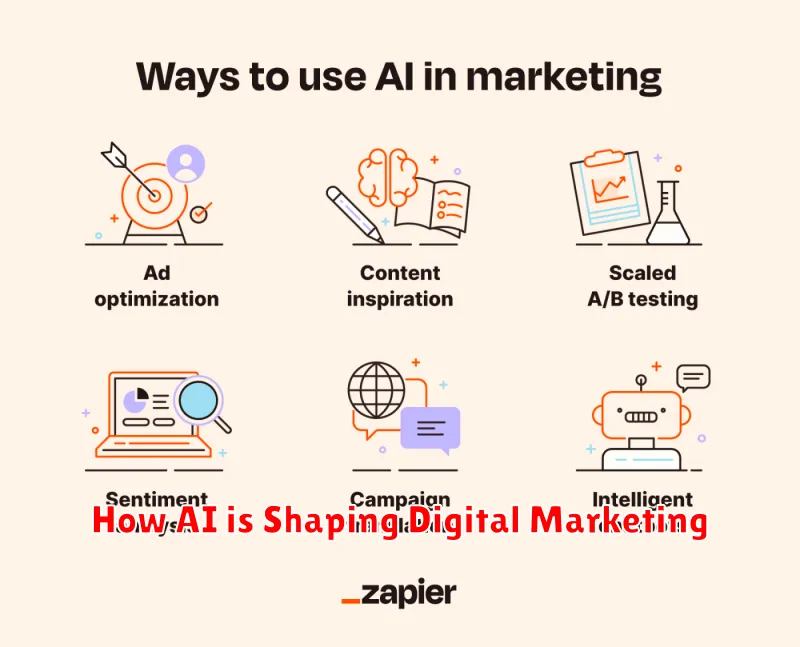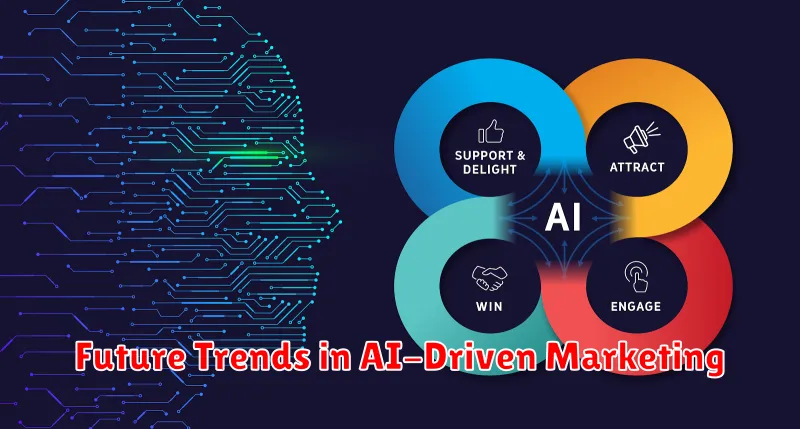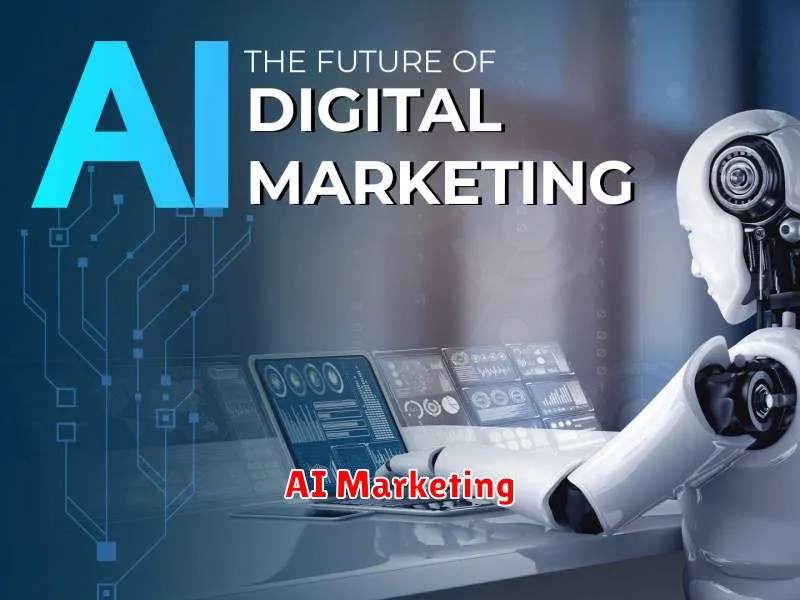The digital marketing landscape is constantly evolving, and in recent years, artificial intelligence (AI) has emerged as a transformative force. From automating repetitive tasks to personalizing customer experiences, AI is revolutionizing the way businesses engage with their target audiences. In this article, we will delve into the profound impact of AI on digital marketing strategies, exploring its various applications and the benefits it offers.
From AI-powered chatbots that provide instant customer support to predictive analytics that anticipate customer behavior, AI is empowering marketers to make data-driven decisions and optimize their campaigns for maximum impact. By leveraging the power of AI, businesses can gain a competitive advantage, enhance customer satisfaction, and drive business growth.
How AI is Shaping Digital Marketing

Artificial intelligence (AI) is rapidly transforming the landscape of digital marketing. From automating tasks to personalizing customer experiences, AI is empowering marketers to achieve greater efficiency, effectiveness, and insights.
One of the most significant ways AI is shaping digital marketing is through automation. AI-powered tools can automate repetitive tasks such as email marketing, social media scheduling, and data entry, freeing up marketers to focus on strategic initiatives.
AI is also revolutionizing customer experience. By analyzing vast amounts of data, AI can personalize website content, product recommendations, and marketing messages, creating a more engaging and relevant experience for customers. This personalized approach can lead to increased conversions and customer loyalty.
In addition to automation and personalization, AI is enhancing marketing analytics. AI-driven tools can analyze large datasets and identify trends and patterns that would be difficult or impossible for humans to discover. This data-driven approach provides marketers with valuable insights into customer behavior, campaign performance, and market trends.
AI is also playing a key role in content creation. AI-powered tools can generate written content, images, and even videos, helping marketers create engaging and relevant content more efficiently.
The impact of AI on digital marketing is undeniable. By embracing AI, marketers can streamline operations, enhance customer experiences, and gain a competitive edge in today’s rapidly evolving digital landscape.
The Role of AI in Personalized Marketing
In today’s saturated digital landscape, standing out from the noise and connecting with customers on a personal level is crucial. Artificial intelligence (AI) is revolutionizing marketing strategies by enabling businesses to personalize customer experiences like never before.
AI-powered tools analyze vast amounts of customer data, including browsing history, purchase behavior, demographics, and social media interactions, to create detailed customer profiles. This information allows marketers to tailor messages, offers, and content to individual preferences, enhancing engagement and conversions.
Personalized recommendations are a prime example of AI’s impact. AI algorithms analyze past purchases and browsing behavior to suggest products or services that align with customer interests. This leads to a more relevant and satisfying shopping experience, boosting customer satisfaction and loyalty.
AI chatbots are also transforming customer service. These intelligent assistants provide instant and personalized responses to inquiries, resolving issues efficiently and freeing up human agents to handle more complex tasks.
Moreover, AI helps optimize marketing campaigns through predictive analytics. By analyzing data trends and customer behavior, AI algorithms can forecast campaign performance, identify potential issues, and suggest adjustments to maximize ROI.
The power of AI lies in its ability to automate repetitive tasks, personalize customer interactions, and generate insights that drive better marketing decisions. By embracing AI, businesses can create more engaging, relevant, and effective marketing campaigns that resonate with their target audiences.
Challenges in Implementing AI in Marketing Campaigns
While AI offers numerous benefits to marketing strategies, its implementation comes with its own set of challenges. One significant hurdle is the lack of data or access to relevant and clean data. AI models heavily rely on large datasets for training, and without sufficient data, their effectiveness can be compromised.
Another challenge is ensuring data privacy and security. AI models often process sensitive personal information, making it crucial to implement robust data security measures to prevent breaches and comply with privacy regulations.
Transparency and explainability also pose challenges. AI models can be complex “black boxes” that make decisions without providing clear explanations for their reasoning. This can create difficulties in understanding how AI is impacting marketing strategies and identifying potential biases.
Finally, integrating AI with existing marketing systems and workflows can be complex. Implementing AI requires significant technical expertise and infrastructure, and organizations need to ensure that their systems are compatible with AI solutions.
Future Trends in AI-Driven Marketing

The landscape of digital marketing is constantly evolving, and artificial intelligence (AI) is at the forefront of this transformation. AI-powered tools are revolutionizing how marketers approach everything from customer segmentation and content creation to campaign optimization and personalization. As AI technology continues to advance, we can expect even more exciting and transformative trends in AI-driven marketing in the coming years.
One of the most significant trends will be the rise of hyper-personalization. AI algorithms can analyze vast amounts of data about individual customers, including their browsing history, purchase behavior, and social media interactions. This data can then be used to create highly tailored marketing messages and experiences that are relevant to each customer’s unique needs and interests. This level of personalization will lead to increased customer engagement and satisfaction, ultimately driving conversions and loyalty.
Another major trend will be the increased adoption of AI-powered content creation tools. These tools can generate high-quality content, such as blog posts, social media updates, and even video scripts, based on specific keywords and topics. This will allow marketers to create engaging content more efficiently and at scale, freeing up their time to focus on higher-level tasks like strategy and analysis.
Predictive analytics will also play a crucial role in AI-driven marketing. AI algorithms can analyze historical data to identify patterns and trends, allowing marketers to predict customer behavior and optimize their campaigns accordingly. This will enable them to target the right audience at the right time with the right message, maximizing their return on investment.
Finally, we can expect to see greater integration of AI with other marketing technologies, such as customer relationship management (CRM) systems and marketing automation platforms. This will create a more holistic and integrated approach to marketing, allowing marketers to leverage the power of AI across all aspects of their campaigns.
The future of AI-driven marketing is bright and full of possibilities. By embracing these trends and investing in the right tools and technologies, marketers can leverage the power of AI to achieve their goals and stay ahead of the competition.
The Impact of AI on Consumer Engagement
Artificial intelligence (AI) is rapidly transforming the landscape of digital marketing, and one of its most significant impacts is on consumer engagement. AI-powered tools are enabling marketers to understand their audiences better, personalize experiences, and deliver more relevant and engaging content, ultimately driving deeper connections with customers.
One of the key ways AI is enhancing consumer engagement is through personalization. By analyzing vast amounts of data about customer behavior, preferences, and interactions, AI algorithms can create highly customized experiences. This includes personalized product recommendations, targeted advertising, and tailored content, making consumers feel understood and valued.
AI also empowers marketers to deliver more relevant content at the right time. By leveraging natural language processing (NLP) and machine learning, AI can analyze customer data to identify patterns and insights that inform content creation and distribution. This allows marketers to produce content that is directly relevant to individual customers’ interests and needs, boosting engagement rates.
Furthermore, AI is transforming customer service and support. Chatbots powered by AI can provide instant and personalized assistance to customers, answering questions, resolving issues, and even making recommendations. This 24/7 availability and quick response time significantly enhance customer satisfaction and loyalty.
AI is also enabling marketers to gather valuable insights from customer data. By analyzing data on customer behavior, sentiment, and feedback, AI can provide actionable insights that inform marketing strategies and campaign optimization. This data-driven approach helps marketers understand what resonates with their audience and optimize their efforts for maximum impact.
In conclusion, AI is playing a pivotal role in revolutionizing consumer engagement. By enabling personalization, content relevance, improved customer service, and insightful data analysis, AI is empowering marketers to build stronger connections with their audiences and drive meaningful engagement. As AI technology continues to advance, its impact on consumer engagement will only become more profound.
Case Studies: Successful AI-Powered Marketing
AI is transforming digital marketing by automating tasks, personalizing experiences, and optimizing campaigns. Several companies have already achieved remarkable results with AI-powered marketing strategies. Here are a few notable case studies:
Netflix utilizes AI to personalize recommendations for its users. By analyzing user viewing history, preferences, and ratings, Netflix suggests content that is highly likely to be enjoyed. This personalized approach has contributed significantly to its subscriber growth and engagement.
Amazon uses AI for various marketing initiatives, including product recommendations, targeted advertising, and personalized pricing. Its AI-powered recommendation engine suggests products based on purchase history, browsing behavior, and customer demographics. This results in increased sales and customer satisfaction.
Starbucks leverages AI for its mobile ordering and loyalty program. By analyzing customer data, Starbucks can predict demand, optimize inventory, and send personalized offers to its loyal customers. This has streamlined operations and enhanced customer engagement.
These case studies demonstrate the potential of AI to revolutionize digital marketing strategies. By leveraging AI-powered tools and techniques, businesses can enhance customer experiences, optimize campaigns, and achieve significant growth.

